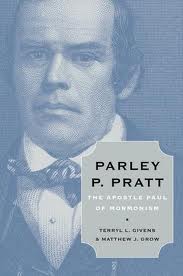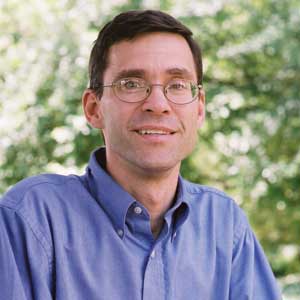Search results for: “Julie Smith”
-
Guest Post: The Anthropology of Providing and Nurturing
This is a guest post from Julie Hartley-Moore, who has a Ph.D. in anthropology from Columbia University. She taught at BYU for 9 years, was a Dean at Elgin Community College in Illinois, and is now director of the Utah State University Campus in Tooele. She is a wife and mother of two.
-
Can Books Cause Problems? Reflections on Brigham Young: Pioneer Prophet
I recently did a quick read of John G. Turner’s Brigham Young: Pioneer Prophet and posted notes here. Here is my one-sentence summary: “Turner gives a balanced if candid portrayal of Brigham, one that mainstream Mormons should be able to read without serious difficulties.” But not everyone agrees. Some very bright people think the book…
-

Dia de los Muertos: We Live in their Presence
I won’t lie, I was frightened going to the Democratic Republic of the Congo
-

Mormons in the Running
With the election approaching on Tuesday, I’ve been racing to put together a rundown of the candidates who are Mormon around the country. I know that Kay Atkinson King has done an extensive series on BCC going over the congressional elections, but I think that my summary below has a few additional pieces of information,…
-
Dear SLCHQ,
Hiya, It has recently come to my attention that my ward and stake are in a gross state of apostasy. I was completely unaware of this until I saw this infographic on the LDS Newsroom site, but now that I know about it, I really think you need to send us some GAs to reorganize…
-
Sunday Morning Session
President Eyring conducted the Sunday morning session, featuring talks by President Dieter F. Uchtdorf, Elder Russell M. Nelson, Elder Ronald A. Rasband, Sister Julie B. Beck, Elder D. Todd Christofferson and President Thomas S. Monson. Direct quotations (based on my notes) are given in quotes; all other text represents my summary of the remarks given.…
-

What Happened Last Thursday at Institute: l’Affair Botte Goes Local
(I’m jumping because of the Bott stuff, but will still put up my 2 posts on Genesis 2-4 and Creation/temples post.) Instead of beginning on the Flood on Thursday as planned, I decided to take 5 minutes to talk about the mark of Cain in Genesis 4, and the curse on Canaan in Genesis 9.…
-
The Book of Mormon: What has it done for you lately?
Julie is posting detailed commentary and Kent is providing literary reflection; I’m afraid all I have to offer on the Book of Mormon is general observations. This week let’s talk about situating the book as a whole, not so much in terms of content and form (which I’ll address in later posts) but in terms…
-

Book Review: Parley P. Pratt: The Apostle Paul of Mormonism
“If Pratt wanted to leave for posterity a record of his apostolic role in providential history, he also wanted to leave for futurity the story of the flesh and blood Parley P. Pratt (393).” Regardless of whether we agree with Givens & Grow on this point, it is the lens through which we ought to…
-

The Literary, Linguistic and New York City Life of Pratt
The first Institute class held in our upper Manhattan apartment in 1988 explored Mormon philosophy and intellectual life. The readings included a 1969 Dialogue article by Leonard Arrington, “The Intellectual Tradition of the Latter-day Saints,” (pdf) which mentioned a questionnaire Arrington had sent to 50 Mormon intellectuals asking them to list the five most eminent…
-

12 Questions with Grant Hardy – part I
To cap off our roundtable review of Grant Hardy’s new book Understanding the Book of Mormon we’re fortunate to feature an interview with the book’s author. The interview will be posted in two parts. Our thanks to all who have participated, and especially Bro. Hardy.
-
Summer Seminar Symposium: The Cultural History of the Gold Plates
Participants in Richard Bushman’s and Terryl Givens’ Summer Seminar on the Gold Plates will be presenting papers tomorrow, Thursday, August 18th, at BYU. Here are the details: The Mormon Scholars Foundation Annual Summer Symposium on Mormon Culture The Cultural History of the Gold Plates Thursday, August 18, 2011 B037 Joseph F. Smith Building Brigham Young…
-

Does Gender Matter?
Gender is an essential characteristic of individual premortal, mortal, and eternal identity and purpose. ~ The Family: A Proclamation to the World Gender is part of who we are and who we have always been. It is important. It matters. The church uses gender to delineate authority, callings, and roles: By divine design, fathers are to…
-
Mormon Site Muzzles Members
ST. GEORGE–AP–August 10, 2010– Verna Watkins sits on her threadbare couch clutching a wrinkled tissue. Between sobs, she says, “I consider it the most sacred spiritual experience of my life . . . when the Three Nephites–divine beings–helped me change the tire on my Suburban. I spent two hours writing the story up to post…
-
Old About Page
Technical Details This blog is powered by WordPress. It is coded by Kaimi, Matt, and Gordon. We have received helpful advice at various points from Clark Goble and Daniel Bartholomew (aka Danithew). We’re using plugins developed at Mt Dew Virus and Rebel Pixel Productions, as well as the WordPress Blacklist developed by Laughing Lizard and…
-
Notes From All Over – for week ended May 9
Comment here on the Notes From All Over for the past week.
-
Foundation and Apostasy
What if the historical evidence for the foundation of the early Christian church is indistinguishable from evidence for its apostasy? What if the early church and its scriptures only arose through processes of decay?
-
Random Thoughts on the Leadership Training Meeting
Last month’s Worldwide Leadership Training Meeting is now available online here.
